
What makes some conversations more difficult than others, and why do we so often avoid discussing difficult issues?
I have found that the most challenging conversations are often those where we anticipate potential conflict, especially if we expect an emotional reaction from the other person. We might worry about hurting their feelings, surprising them, or perhaps provoking an angry response. At times, we may even doubt our own ability to manage our own emotions, fearing we could lose our temper or shut down. Because heightened emotions are often uncomfortable, and we typically avoid unpleasant experiences, it can cause us to avoid those situations. This is even more likely if we feel that we lack the communication skills to navigate these situations effectively.
Another possible reason for avoiding difficult issues relates to power dynamics. When addressing a sensitive issue with someone in a senior position, there’s a risk of negative consequences, such as career repercussions or damage to the professional relationship. Depending on the culture of the organization, it might be safer to stay quiet than to speak up.
This obviously isn’t an exhaustive list, but these are some scenarios that I see pretty commonly.
What are some potential long-term effects of avoiding difficult conversations or not addressing differences in the workplace?
The main outcome of avoiding difficult conversations is obviously that the problematic situation isn’t addressed, and so it never gets resolved. In turn, depending on the problem, it could have downstream effects like decreased productivity, negative team morale, feelings of unfairness (e.g., if an employee’s underperformance is allowed to continue unchecked).
Also, on a personal level, it could harm your reputation. Effective leaders must be willing to confront challenges, engage in difficult conversations, and demonstrate leadership courage. If others perceive you as unwilling to do so, it may undermine their confidence in you, viewing you as someone who cannot manage the more demanding aspects of the role.
What are some of the ways that you have seen clients successfully bridge differences in the workplace with character?
The most successful clients are those who approach potentially uncomfortable topics with a balance of honesty and diplomacy. They have the courage to address issues directly but do so with empathy. They manage their own reactions while demonstrating the emotional intelligence to be attentive to others’ responses, ensuring the conversation remains constructive rather than confrontational. They also show humility by being open to the possibility of being wrong and by actively listening to the other person. Their ultimate aim is to achieve a positive outcome and foster constructive dialogue, rather than simply trying to ‘win’ the discussion.
How do you believe leaders can model and promote respectful conversations and bridge differences within their teams?
First and foremost, a leader needs to lead by example by creating a sense of psychological safety, being respectful, and demonstrating active listening – even when the stake are high. They need model a willingness to admit mistakes and hold themselves accountable so that their team members will also do so. This sets a tone for the team and establishes a positive culture.
Leaders should also lean into challenging situations, have difficult discussions, and encourage the team to do likewise. After all, if a leader is avoiding conflict, the team is going to conclude that differences are frowned upon. Therefore, it’s critical to stress the benefits of constructive conflict by acknowledging that diverse perspectives enable the team to consider multiple alternatives and come up with better solutions.
For many of us, the truth is that we haven’t learned how to manage conflict effectively. We might have picked up bad habits based on what we witnessed growing up or perhaps as a result of co-workers or former bosses who lacked the skills to handle differences effectively. Therefore, providing training or resources to assist people in developing conflict management literacy can be helpful.
How do you think the need for bridging differences in the workplace will evolve in the coming years, especially with the rise of remote work and diverse, global teams?
I definitely think this skill will become even more important in the future. With the rise of remote and hybrid work, employees need to know how to communicate effectively in a virtual environment. Challenges such as deciphering nonverbal cues over a screen, making sure everyone is included (when you may not be able to see everyone on your zoom call), and communicating asynchronously (while being mindful of issues like time zones and personal life outside of work) require greater sensitivity and care. These issues are also relevant when working with diverse, global teams, as different cultural nuances influence how people approach conflict and disagreement. Ultimately, being able to adapt will be essential for collaboration, which in turn, will drive results.
What advice would you give someone who feels uncomfortable or unsure about engaging in difficult conversations?
I could probably say much more about this than anyone would want to read, so the one thing I would say is that it’s important to recognize that being able to have difficult conversations is a skill. And, like any skill, you can improve it with practice. The key is to be willing to tolerate the discomfort so that you are able to get that practice.
There are a lot of books and resources out there that can help you to be able to manage conflict (e.g., Radical Candor, Crucial Conversations, podcasts). Find one, study it, and then have the courage to put it into practice. Your first attempts might feel awkward (just like many of us fell the first time we tried to ride a bike), but across time, you will be more confident doing it – and you might even feel empowered.
Finally, you might never feel totally comfortable doing it – most clients I work with aren’t exactly excited about the prospect of having difficult conversations. But, by reminding yourself why you are having the conversation and by applying various techniques (e.g., self-regulation, active listening, empathy, humility, candor, setting boundaries), you can develop the courage to have them when needed.space

